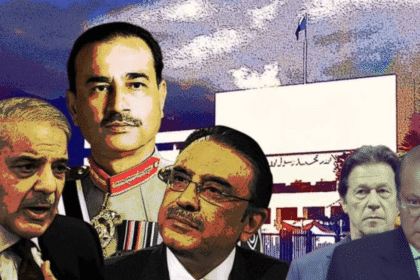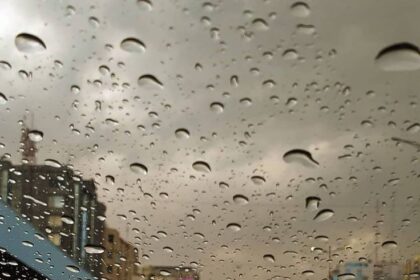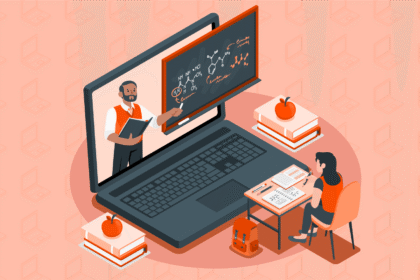In Pakistan, we respond to every visible emergency—floods, inflation, violence, and power outages. But the most urgent crisis we’re facing today is an invisible one. It’s happening in classrooms, kitchens, on buses, and behind closed doors. It’s happening inside people’s minds and bodies.
We are emotionally exhausted as a nation. And yet, we treat mental health like a side conversation—something private, indulgent, or foreign. But mental health is not a luxury. It is the most fundamental part of a healthy, functioning society. It affects everything: education, economy, productivity, creativity, parenting, and peace.
If we are serious about building a better future for Pakistan, we have to stop ignoring the emotional emergency happening all around us.
We can’t build a strong, sustainable country on emotionally broken people. But that’s what we’ve been trying to do. Teachers are burnt out. Mothers are drowning in unprocessed grief. Students are overwhelmed by anxiety and pressure. Fathers are silently carrying trauma that turns into anger. And our youth—the future of this country—are growing up in a world that tells them to stay quiet, stay tough, and keep performing.
We spend time and money on development projects and national planning. But who is tending to the people expected to carry all this forward? Who is checking in on the mental wellness of our population? Who is listening to the tired hearts behind the headlines?
When we ignore emotional health, we don’t just lose individuals—we weaken our collective fabric. Young people drop out of school not because they’re lazy, but because their depression goes unseen. Gender-based violence continues because trauma is inherited, not healed. Productivity collapses when workplaces glorify exhaustion but offer no emotional support. Political unrest grows when hopelessness is left to fester, unheard and unheld.
And somehow, we still act surprised when people crack under the pressure. But silence has a cost. So does survival without reflection.
And yet, the healthcare system cannot meet the need. With fewer than 500 qualified psychiatrists for over 240 million people, clinical mental health support is out of reach for most. But that doesn’t mean healing is impossible. I say this not as an expert or outsider—but as a woman who has had to learn how to breathe again, both literally and emotionally.
After going through pregnancy loss, I experienced a kind of emotional suffocation I didn’t know how to name. It wasn’t just grief—it was a sense of disconnection from my body, my identity, and even my voice. Like many women in this society, I was expected to be fine. To carry on. To keep smiling. But my silence was heavy, and the mask was breaking.
What changed everything for me wasn’t grand or complicated—it was conscious breathing. Inhaling slowly, pausing, and exhaling without judgement. A simple act, repeated with care. It was through breath that I began to feel my body again. Through breath, I found small moments of safety and clarity. I learnt that slowing down isn’t weakness—it’s a return. That reclaiming your breath is the first step to reclaiming your life.
That experience shaped what I now do through Mental Workout with PA—a platform I founded to offer accessible mental wellness for women and youth, rooted in breath work and creative expression. We do not offer therapy, but we offer something equally urgent: space. Space to feel. Space to process. Space to be heard without shame.
In our workshops, whether in classrooms or foundations, we guide participants through simple tools—conscious breathing, expressive art, and grounding exercises—that reconnect them to themselves. The feedback is often emotional and raw. Many women and girls say no one has ever asked how they really feel. Some realise, for the first time, that they’ve been holding their breath for years—figuratively and literally.
There’s something deeply powerful about a woman discovering that her breath belongs to her. About a young person realising they are allowed to pause. About a group of people, who may not know each other, sitting in a circle and giving themselves permission to feel.
These are not small acts. In a country like ours, they are radical.
Mental health in Pakistan has to move beyond elite spaces and become embedded in everyday life. We need emotional literacy in schools. Safe spaces in communities. Public campaigns that don’t just raise awareness but also shift language.
We need to stop calling emotions shameful. We need to stop telling boys to man up and girls to stay quiet. We need to stop equating strength with silence. Because what we call strength is often just unacknowledged suffering.
Healing is not weakness. It is not Western. It is not optional. It is the most human thing we can do. And in a country like ours—where resilience has become our default setting—healing is the revolution we desperately need.
A mentally well Pakistan is not a distant dream. But it starts with allowing people to breathe, feel, and connect without fear.
Let us stop asking everyone to simply endure. Let us offer them something more powerful: the tools to come back to life. One breath at a time.
















